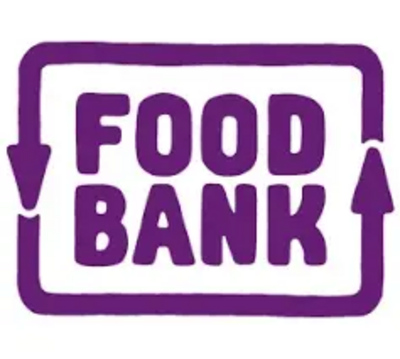Time to regulate access to food as shops struggle to contain stockpiling & Foodbanks call for donations

Vulnerable people and key workers struggle to do their shopping and local Foodbanks call for more donations as supermarkets say there is sufficient food but shelves continue to empty as the 'have-nots' find that we are 'not all in this together'.
Repeated claims on QT by the Health Minister, Matt Hancock that he was negotiating with the supermarkets weeks ago, a claim denied by some supermarkets is beginning to look decidedly hollow as reports come in that health workers finishing their shifts find empty shelves and Foodbanks including our local ones in East Suffolk are under pressure to source food.
The Government claims to be following the science and the letter from food policy academics and addressed to the PM today underlines the need to protect the vulnerable and people on low incomes and initiate a health based food rationing programme.
The letter is reproduced below and includes the five recommendations.
From:School of Health Sciences
Tim Lang, PhD, FFPH, FRSA, Hon DSc Professor of Food Policy Centre for Food Policy Northampton Square London EC1V 0HB, UK Direct tel: + 44-(0)20-7040-8798 Mb: 07812-570579 e-mail: t.lang@city.ac.uk
Rt Hon Boris Johnson, MP Prime Minister
10 Downing Street London SW1 2AA
March 20 2020
Dear Prime Minister,
Re food planning in crisis
We write as academics with experience in food policy matters, and out of immediate concern about the emerging food crisis unfolding in response to the coronavirus covid-19 outbreak. Our concerns include:
Public messaging about food supply is weak and unconvincing. The supermarkets are already subject to unprecedented purchasing stress. Yet people have been stocking up, not least out of concern that, if someone in their household falls ill, they will be unable to obtain more supplies. The supermarkets have responded by rationing some foodstuffs and grocery products. That problem could have been avoided by more consumer-friendly messaging. There is already a dangerous tendency to blame consumer behaviour not shape it. Nudge thinking is no longer sufficient. Consumers have repeatedly been told to look after themselves, so cannot be blamed for acting within their viable realm of influence. It might be regrettable, but stockpiling or uncivil behaviour in stores are signs that appeals to restraint or repetition of the 'We are in it together' message are wearing thin when it comes to food supply.
Official thinking and consultation on food has so far been dominated by an industry focus. The civil society and local authority roles also urgently demand clearer public focus. The Coronavirus Bill has just four pages out of 329 on food, and empowers authorities to obtain information about potential disruptions to food supply, but no powers to resolve those disruptions. We note that last night food work was included under key worker status. Schools needed that guidance,but food crises also require leadership and action from local authorities and the Resilience Forums. Those local bodies have been weakened and dangerously under-resourced. We appreciate (and welcomed) that Defra has at last broadened consultation with the food industry itself beyond the 4 large organisations (NFU, FDF, BRC and UK Hospitality), but it has just focussed on supplies, but has not included consumer or public health representatives.
Prioritising people on low incomes. People on low incomes are particularly anxious about how they will feed themselves during this crisis. Food banks are closing, and those remaining open have supply shortages yet rocketing demands. Some very hungry people are being 'gate-kept' out of food banks because systems for allocating vouchers are failing. Food banks do not and cannot resolve structural inequalities, income deficits, or lack of access. The current crisis is in danger of aggravating existing problems. More than 8.4 million people in the UK are food-insecure, by the UN'scriterion. Diet is a key factor in lowering life-expectancy for the poorest people and weakening their immune systems. The current crisis risks exacerbating diet-related inequalities, which could have long-term adverse consequences. This is a time when market mechanisms are insufficient. Supermarkets cannot be expected to ration for health or filter food purchasing according to need, yet need and equity ought to be paramount. If the 'we are all in it together' principle reigns, then now is the time for health to shape access to food.
We therefore call on the Government to:
(1) initiate a health-based food rationing scheme to see the country through this crisis. This should start from Public Health England's Eatwell Plate, our official nutrition guidelines, and draw on expertise from the devolved administrations, and relevant disciplines.
(2) Rapidly review options for ensuring people on low incomes have sufficient money to buy a decent diet. Maintenance of incomes is already being discussed by the Chancellor for those being laid off, but cash injections for people in receipt of welfare benefit (including Universal Credit) is also needed. Only a cash injection will enable people on low income to purchase food for their health and well-being and to avert hunger. Another possibility is to have a national voucher scheme redeemable for nutritionally sound purchases such as fruit and vegetables.
(3) Ensure that nutritionally appropriate food can and will be delivered to all those who self-isolate or are quarantined.
(4) Announce immediately that this new Food Rationing Scheme will be open, equitable and based on health needs, taking account of age, income, and vulnerability, and that this will be applied UK-wide.
(5) Amend the Agriculture Bill, currently before Parliament, to include a new clause to ensure that the people of the United Kingdom will be fed well, healthily, equitably and sustainably.
Yours faithfully,TIM LANG
Prof of Food Policy Centre for Food Policy City, University of London
pp Erik Millstone & Emeritus Prof of Science PolicySPRU
University of Sussex
Terry Marsden
Professor and Director Sustainable Places Research Inst Cardiff University
